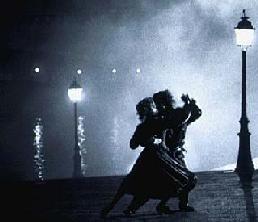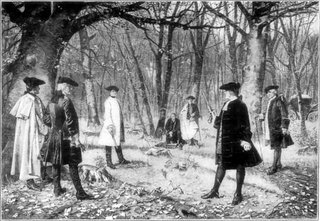
It is God's will that you should be sanctified: that you should avoid sexual immorality; that each of you should learn to control his own body in a way that is holy and honorable...
-- 1 Thes. 4:3-4
The topic of sexual purity has been on my mind, lately - and when something is on your mind, you notice it a lot more - it seems to come up in conversation more, you read more about it, etc.. One thing in particular that struck me (right between the eyes) recently is the whole "how far is too far" question.
Of course, that's the wrong question, and as one great book on the topic of dating puts it, "asking the wrong question will always get you the wrong answer." But still we are
tempted to ask this question because it gets us a little closer to where we want to be. We want to think the Bible isn't clear about such things so that, at the very least, if we stumble in this area, its not
clearly wrong.
The term that Paul used in his letter to the Thessalonians - a term for sexual immorality is
porneia. It appears fifty-five times in the New Testament - so perhaps its relatively important. It describes, in its various usages, all types of lust-driven acts of immorality - not simply that of intercourse - but any act - physical or not - that pollutes sexual purity.
Fact is, if you have even a basic scriptural understanding of what sex really is - you know that its much more than just a physical act. And I do not mean just sex in the context of marriage - sex in the form it was created for. All sex is more than a physical act - it is by its nature mental, psychological, spiritual. The brokenness you see in relationships, in marriages, in families, and throughout the world that can be attributed to sexual weakness proves this to be true. By "all sex" I refer not just to "going all the way" but to anything that takes away from purity. By the very nature of sex, we can indulge in sexual sins without doing anything physical at all.
And, so, I would say that the through-and-through "virgins" in the world can be counted on one hand, with no fingers.
Well, that's quite depressing. Yes, it is. Especially to those who have saved themselves from certain sexual acts (but not others). The typical line drawn here is a physical one - because as I've mentioned, we have the wrong starting point. And to have that "saving yourself" feeling of self-righteousness knocked down a notch or two when you begin to change your definition and realize that really no amount of physical chastity could "save yourself" from sexual impurity...well, its not fun.
But it helps you appreciate the joy of the fact that there was one thought-word-and-deed virgin in history, and when it comes time to stand in front of God, his people will share in that ultimate virginity - a purity that was never marred.
Hitting home: you may never have had sexual intercourse. By the olden-times definition of the word, this would classify one as a virgin. But apply a nuanced understanding of what God, in His word, was really after - not simply an abstinence from a single act, but a changed heart that seeks to be holy and honorable...and suddenly you're not quite as pure as the title would normally imply.
That is not an easy thing to admit to people - that you've screwed up. Repeatedly.
But its all taken care of. And that's something so great, you want to tell other people about it. It takes this kind of inspiration to help you truly bring under control something that your spirit may desire to control, when your flesh is so weak. Not following a rule out of fear of punishment for breaking it, but doing the right thing out of love for the one who loves us completely.
Sometimes every day feels like square one.


































